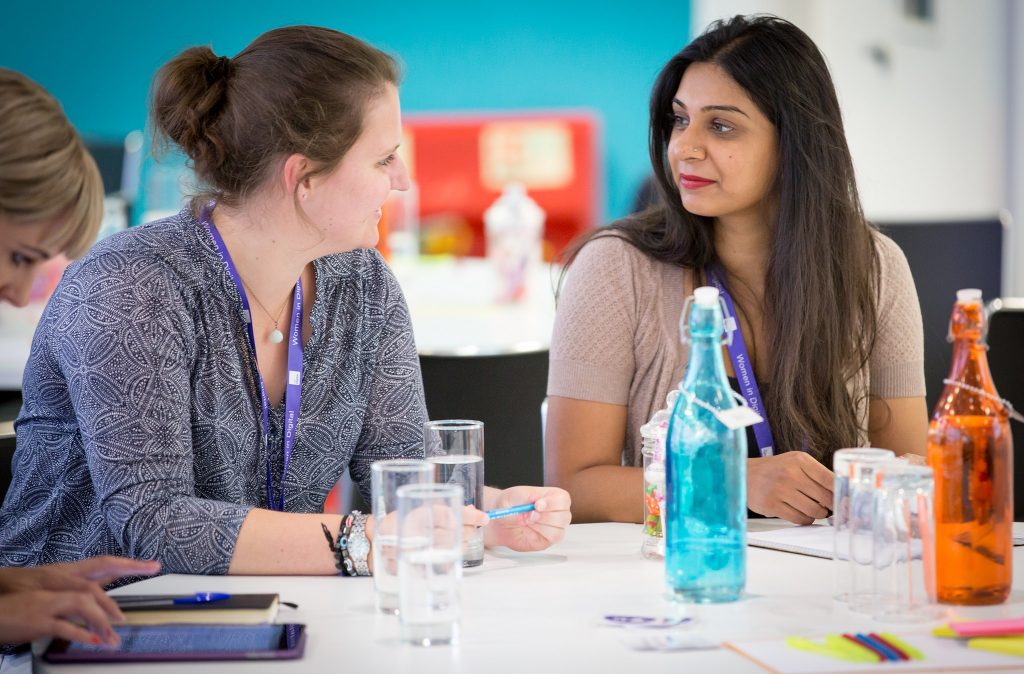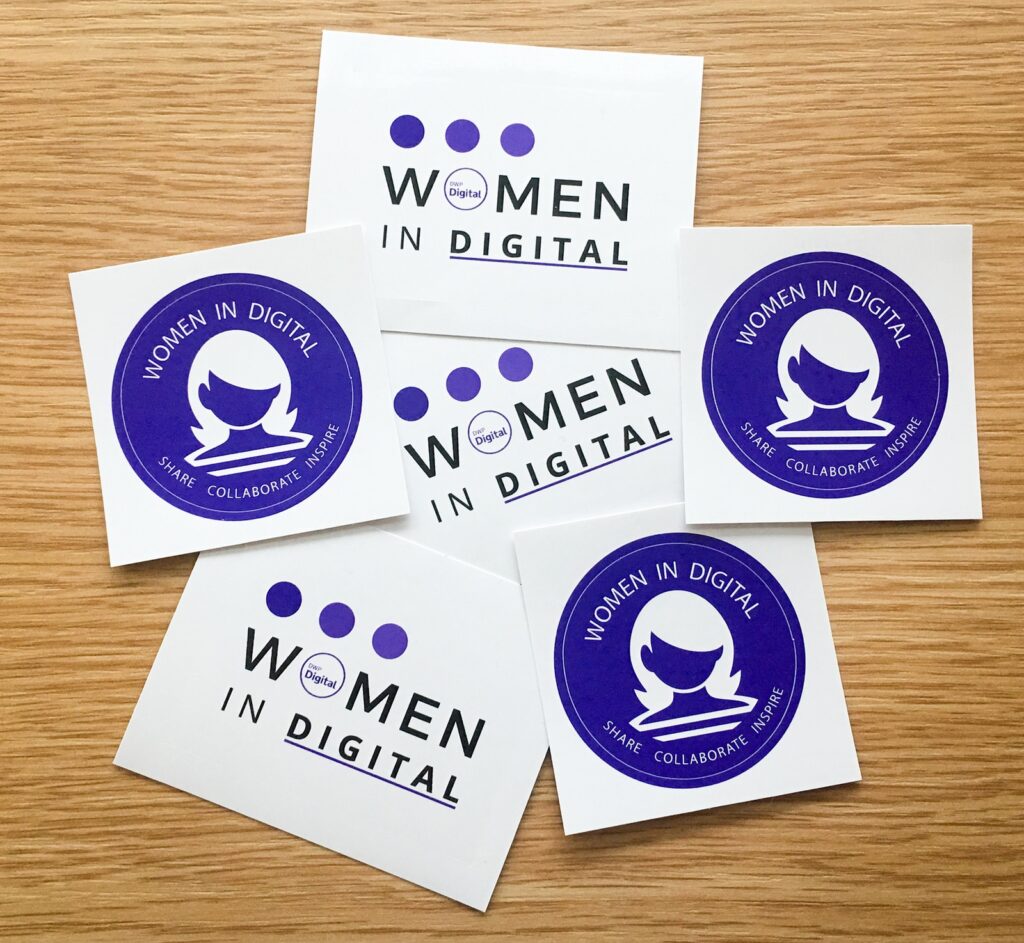 Last month we attended Women in Digital, an event organised by DWP. The aim of the day was to meet with other digital women in government and the private sector to:
Last month we attended Women in Digital, an event organised by DWP. The aim of the day was to meet with other digital women in government and the private sector to:
- share ideas on how we encourage and attract women into digital roles at all levels
- increase opportunities to collaborate, support and empower women in digital
- make visible and practical strides towards government and the digital sector being seen as a modern, inclusive employer for women.
There was certainly a great buzz around the room. It was empowering and a fantastic opportunity to meet women from all walks of life and learn about their journey into digital. It was also encouraging to know that women are starting to get a much greater presence in digital.
You don’t have to be ‘a techie’
During the day it became obvious to us that one of the barriers to women (and also men) joining digital teams can be the misapprehension you have to be ‘a techie’. This may be true for some roles but definitely not for others.
We both work in User Research and neither of us had a techie background.
Rachel: When I finished my Psychology degree I knew I wanted to find a job where I could use the broad range of skills I’d developed. I saw an advert for a User Researcher at HMRC digital and thought this was something which would give me this opportunity.
My role isn’t technical. I help inform and innovate HMRC’s services to best meet our users' needs as we move forward into a more and more digital world.
Kay: I had been in the civil service for a few years but mainly working in policy areas. My drive to be part of the digital transformation came from wanting to make a meaningful contribution to building digital services. I didn’t have any technical qualifications but I knew I still had something to offer. I brought with me a sense of realism, and skills and experience that could be easily transferred.
I’m fortunate I’ve found myself a role that I am truly passionate about in supporting service teams to think about users who don’t have the required digital skills, access or opportunity to take part in the rapidly changing digital world.
I work with many technical professionals who are great at what they do and experts in their field. But for someone who doesn’t always understand the technical conversations I can take a step back and contribute to these from a non-technical perspective.
It's about getting digital teams to understand the barriers people may have with using digital and ensuring we don’t leave anyone behind. We are building services accessible for everyone. I help keep it real.
Do we need to change the way we promote digital jobs?
Rachel: User Research is a great example of a role in digital which doesn’t require you to be ‘technical’. Our researchers have a range of experiences. I think this is a message which we need to make clear to both males and females who might have transferable skills which could be applied to many roles in digital.
Kay: Many of the jobs I looked at sounded very technical and the way they were written put me off even applying.
The reality is you don’t have to be a coder or have technical skills to join digital. No matter what your background, there are roles and opportunities for everyone. And that’s a message we need to improve on.
One of the speakers on the day talked about ‘not diversifying, but normalising’. A digital workforce should reflect our society in its makeup. We’re building services for society so input from people from all parts of society can only help make our services even better. So we want more women to help shape our public services as we move towards digital by default.
Some ideas to support getting women into digital we discussed included creating shadowing and mentoring schemes, giving an opportunity to come and see how we work in practice. The best way to encourage people to apply for our roles is to create greater exposure to our working environment. Let people come and see how it’s done. So we’re looking into organising this.
We also learnt that job ads can be too specific. Just by shifting some of the ‘must haves’ into ‘desirable’ will increase the number of applications from women.
We should also be highlighting our great working conditions including flexible working hours and 25 days' leave Then there’s the great training and personal development opportunities to give people real career prospects.
The real value of working in digital for us comes from being among a diverse set of people to learn, develop and share experiences as a group - regardless of your gender. Everyone can join and make a difference and ultimately we all want the same thing. A job we enjoy and which adds value to society.

4 comments
Comment by Jennie Malia posted on
Thank you for this. I have been interested in the User Research role for some time but as mentioned thought I had to be a 'techie'. This has encouraged me to find out more.
Comment by ianmorris posted on
Hi Lyndsay, not all our digital posts require a degree - the nature of the post determines what qualifications are needed. Thank you for your interest and please keep looking out for new digital vacancies coming up.
Comment by Salma Mallam posted on
Yes I am one of those people who thought I would need to be a 'techie' to get involved in digital. Great article and it has definitely given me something to think about
Comment by Lyndsay posted on
I have many transferable skills, and would love to apply for a user researcher role, but don't have a degree. That is the biggest barrier for me that has never been a problem before in my 17 years as a civil servant. Is it something that will always be a requirement for the digital roles?